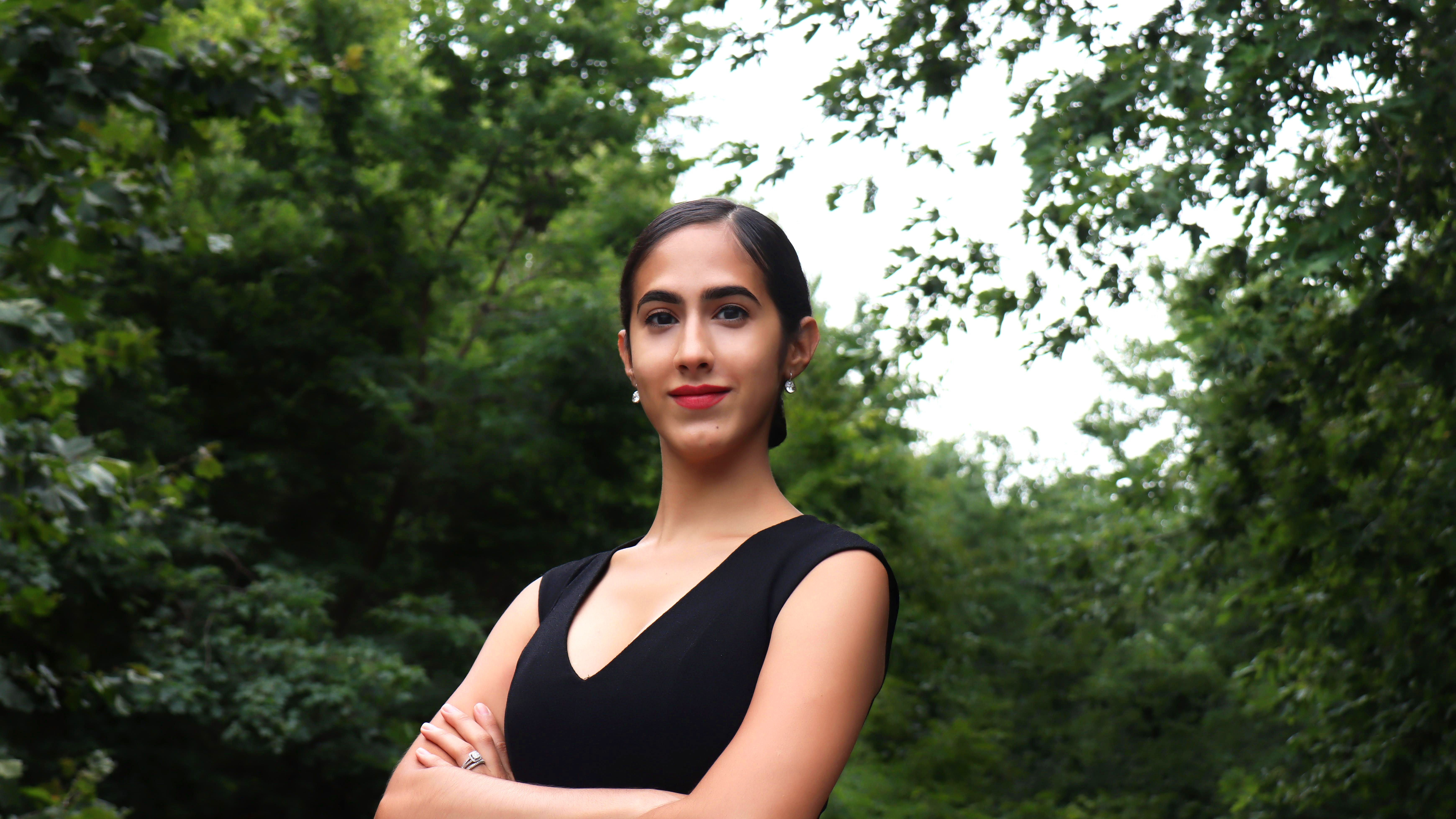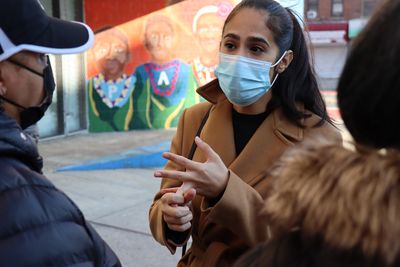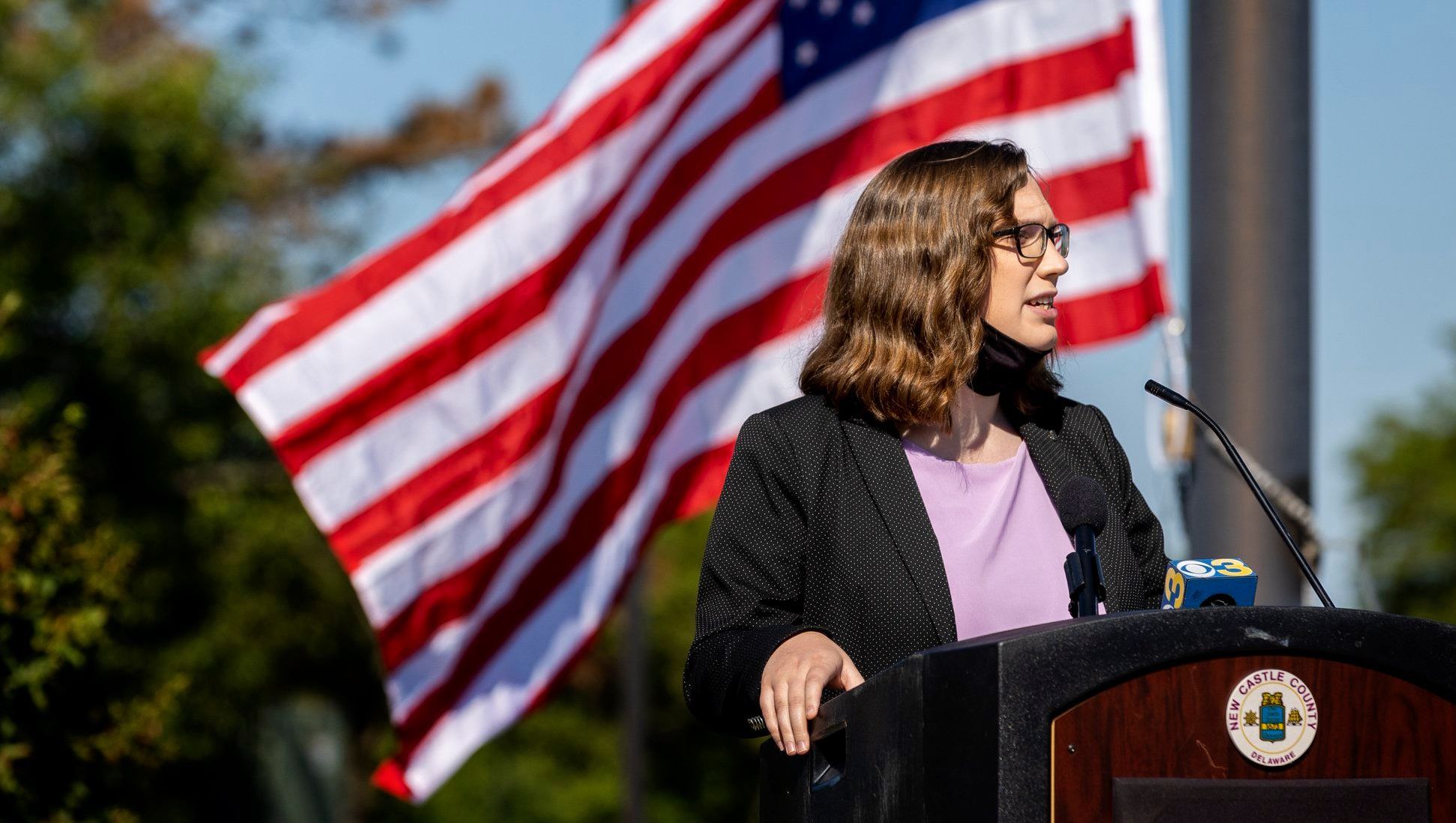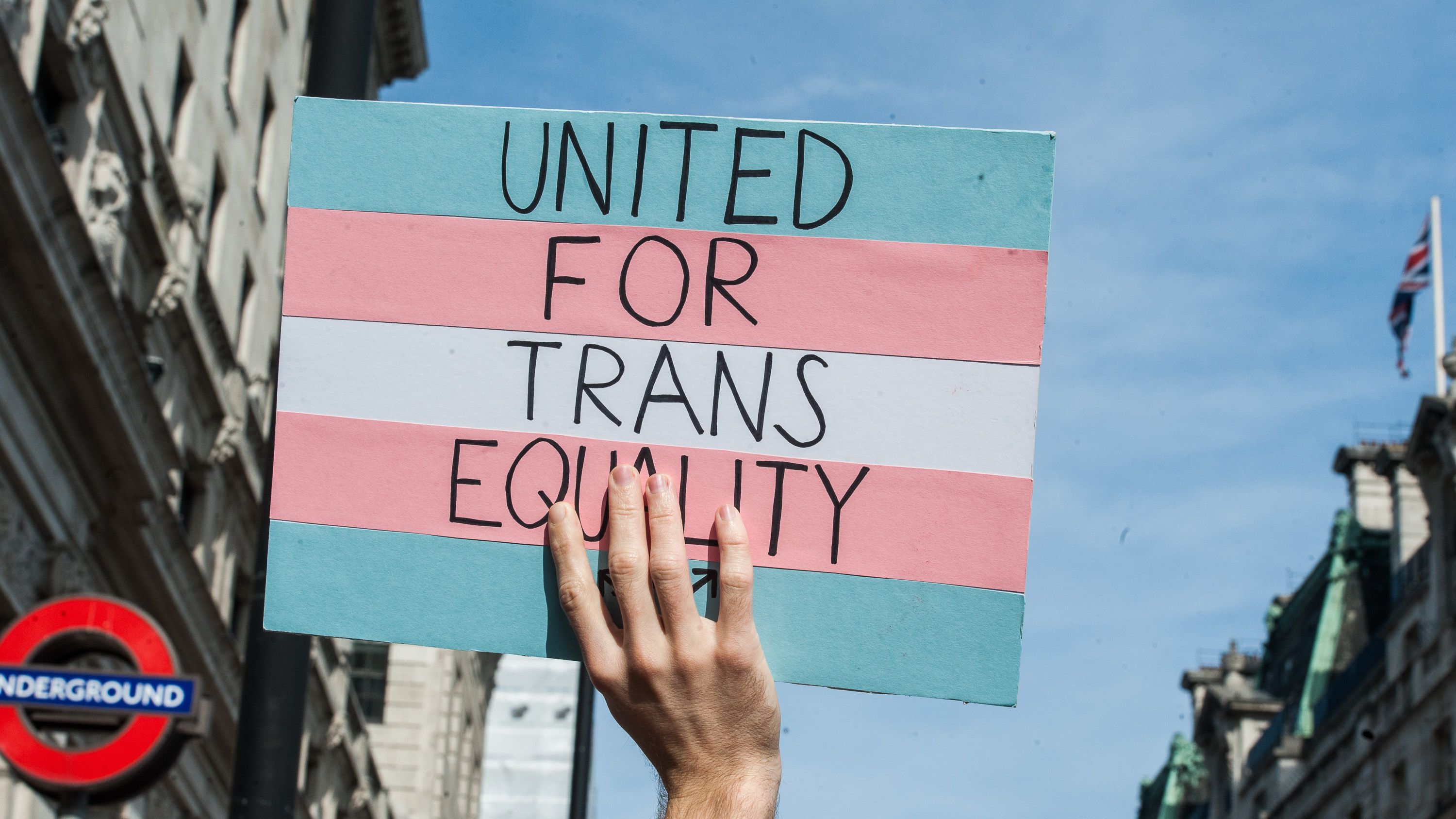Elisa Crespo Wants to Provide Justice for Her Bronx Community
The city council candidate is fighting for working-class families in her district—one of the poorest in New York—with a chance to make history.


Elisa Crespo doesn't have time to think about the historic nature of her campaign. Yes, she's running for New York City Council to represent District 15, her community in the Bronx, and yes, if she wins, she will become the first out transgender legislator in the state of New York. But, frankly, there's just too much work to do. Like creating a public option for employment (more on that later) and bringing justice to a district facing disproportionately alarming health and economic crises. Crespo says that, prior to COVID-19, there was already a pandemic in the Bronx, where certain neighborhoods are facing unemployment rates upwards of 20 percent and nearly a third of the community has less than a high school education. Some people don't even have access to WiFi.
"I'm not here to make history. I never decided to run because I'm trans. I just happen to be a candidate who is trans. That's the way that I was born and that's out of my control," Crespo tells Marie Claire. "But I know that people are struggling with access to nutritious food. I know that people need help getting jobs. I know that so many of our people are living with starvation wages. I know that so many of our schools are underfunded. I know that there's not enough affordable housing options for our most vulnerable New Yorkers."
Crespo, 30, never envisioned herself running for public office, let alone potentially running back-to-back campaigns amid a pandemic. The vacant city council seat she's vying for alongside nine other candidates was formerly occupied by Ritchie Torres—the first LGBTQ+ person of color to represent the Bronx who's now serving the district in the U.S. House Representatives; it will be filled in a special election on March 23. But Torres's term was set to expire this year, so the winner will have to battle once again in New York's primary on June 22 and, hopefully, the general election in November.
I'm not here to make history. I never decided to run because I'm trans. I just happen to be a candidate who is trans.
The pandemic has shifted priorities, but Crespo is still intent on building upon the work that Torres started in the district. That means focusing on economic recovery by developing a public option for employment, which would create a pipeline into civil service jobs for folks living at or below the federal poverty line, the homeless, formerly incarcerated at-risk youth, and people with disabilities. Under this plan, the people who tend to be shut out from the private sector would receive the training and jobs they need from the government, providing them with a living wage and benefits to create a public workforce that could, for example, create a green economy.
Crespo knows what it's like to grow up poor. Raised by a working-class Latina mother across multiple boroughs of New York City, Crespo and her family had to depend on social safety net programs like food stamps, Medicaid, and public housing to survive. At 15, Crespo met some older trans women and began to discover her own identity. ("It all sort of clicked for me," she says. "It wasn't until I saw myself in other people that I understood who I really was.") She went to college for a year, dropped out, and didn't go back until several years later. During that time, Crespo spent her days with other Black and brown queer people down by the Christopher Street pier "united in our struggles [of] being hustlers and trying to survive in a world that was constantly telling us that we didn't fit in or belong."
As formative as those years were, Crespo grew into adulthood and realized she had dreams she wanted to fulfill, despite not knowing exactly what they were at the time. She ended up meeting a nice young man, falling in love, and getting married. The nice young man's mother convinced her to go back to school. After deciding to study political science, she enrolled in John Jay College of Criminal Justice, a public school within the city's university system. That's when her life changed.
Crespo became involved in student government and learned the power of organizing. She took trips to the state Capitol to discuss affordable and accessible higher education with legislators. These trips helped her understand the legislative process during the tumultuous and polarizing 2016 presidential election, a time in which she was concerned about the rise of white supremacy and xenophobia, yet also inspired by the candidates who were talking about climate change and student loan debt. After graduating in 2019, she landed an internship in the New York State Assembly. Later, she would work in the office of Bronx Borough President Ruben Diaz Jr. in the community education council unit, where she helped students and families across the borough navigate the City's Department of Education.
Get exclusive access to fashion and beauty trends, hot-off-the-press celebrity news, and more.

Crespo talking with constituents while campaigning. "I think most of us have done a good job at pivoting and moving our campaigns more remote, but you still have to talk to people in person," Crespo says. "People do want to see you and hear you and ask you questions. It's just about finding the right balance."
In February 2020, Crespo launched her campaign for city council member (she planned to run whether or not Torres won), deciding the best way to expand her work would be in this city council position, which oversees one of the largest city budgets in America while also having oversight of city agencies and the land use process. "I felt like not only was it going to take a new generation of bold leaders to bring real systemic change to the city, but I also felt like so many voices and stories and lived experiences were shut out from the political process," she says. "This year we have a unique opportunity to elect a city government that's reflective of our populace in New York City, and to make sure that everyone understands that politics is for them, too, no matter what their backstory is or their upbringing or where they come from."
Crespo's own backstory as a survival sex worker has gained national attention. A New York Post article ostensibly about her candidacy said little about her campaign or policy ideas, and instead led with her past work, calling it "prostitution." At the time of publication, Crespo tweeted that it's "shameful for anyone to weaponize transphobic victimization."
In deciding to run for office, Crespo knew she'd have to be transparent about her past, but she has no interest in constantly reliving that portion of her life. Instead, she wants to show people in her district who are struggling that it's not about where you were—it's about where you're going.
Politics is for them, too, no matter what their backstory is or their upbringing or where they come from.
"We take the best options that we have at the moment and that's what I did. I had to take care of my family. I had to provide for myself. I think folks forget that it wasn't until 2019 that [New York] passed the Gender Expression Non-Discrimination Act, so trans people don't feel comfortable walking into the private sector and asking for an application or sitting down and interviewing," Crespo says of her time as a survival sex worker. "Unfortunately, that was a trauma I had to relive, but it's my story and I regret none of it. It showed me how to be a fighter. It showed me how to survive."
Though Crespo doesn't center her campaign on her identity, the significance of her candidacy also isn't lost on her. Trans political power may be steadily increasing, but she still wants people to remember that trans people are constantly left behind. That trans people are being killed in disproportionate numbers. That trans people are facing barriers to employment simply for being who they are.
"The reality is that people like me, trans women of color, have an average life expectancy of 35 years old. There are so many marginalized communities that are struggling with opportunities to employment, with having their voices heard, with having a seat at the table," Crespo explains. "And part of what I think my campaign is about is helping people who have never seen themselves reflected in their candidates and helping them believe that they, too, can run for office. While I am not here to be the first, I certainly hope that I won't be the last."
Running a campaign is emotionally, physically, and mentally taxing without having to experience the scrutiny Crespo has endured as a trans woman. But Crespo understands this campaign is bigger than her and, because of that, she'll keep pushing forward to improve the quality of life in her community and help others feel seen—especially the trans youth that remain under attack by lawmakers across the country.
"I truly believe in the power of public service and that's what keeps me going, understanding what I'm doing really has the opportunity to change so many people's lives."
RELATED STORIES


Rachel Epstein is a writer, editor, and content strategist based in New York City. Most recently, she was the Managing Editor at Coveteur, where she oversaw the site’s day-to-day editorial operations. Previously, she was an editor at Marie Claire, where she wrote and edited culture, politics, and lifestyle stories ranging from op-eds to profiles to ambitious packages. She also launched and managed the site’s virtual book club, #ReadWithMC. Offline, she’s likely watching a Heat game or finding a new coffee shop.
